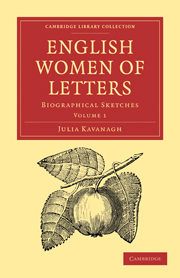Summary
Two great literatures have ruled Europe for the last two hundred years: the French and the English. They ruled alone, until, dazzling the world with a delicate and noble genius, long unsuspected, Germany awoke from her slumbers, and poured forth, in a few years, the accumulated treasures of centuries. But even though their sway is no longer undivided, the broad, original line remains; and whatever work of modern literature we open—poem, novel, or history—we find that its spirit is either French or English, or a mingling of both. It may have been modified by Germany or Spain, by metaphysical subtlety or by epic ballad; but the great original distinction is too clearly impressed to be mistaken by any save the careless.
This is especially true of fiction. Acute critics have traced back the modern novel to purely Teutonic sources; others have sought for it in the broad stream of the Middle Ages, in the romances of chivalry; but that result of many influences with which we began, the Scudéry novel, owed little to the German element, and not much to the heroic romance: it was French, and the manifestation of a new subtle spirit of analysis, finesse, and truth. Mighty deeds, strong passions, were fading away; and it is when external life has less hold on attention, when these passions depart, that observation awakens; the less food it has the keener it grows.
- Type
- Chapter
- Information
- English Women of LettersBiographical Sketches, pp. 1 - 27Publisher: Cambridge University PressPrint publication year: 2010First published in: 1863

